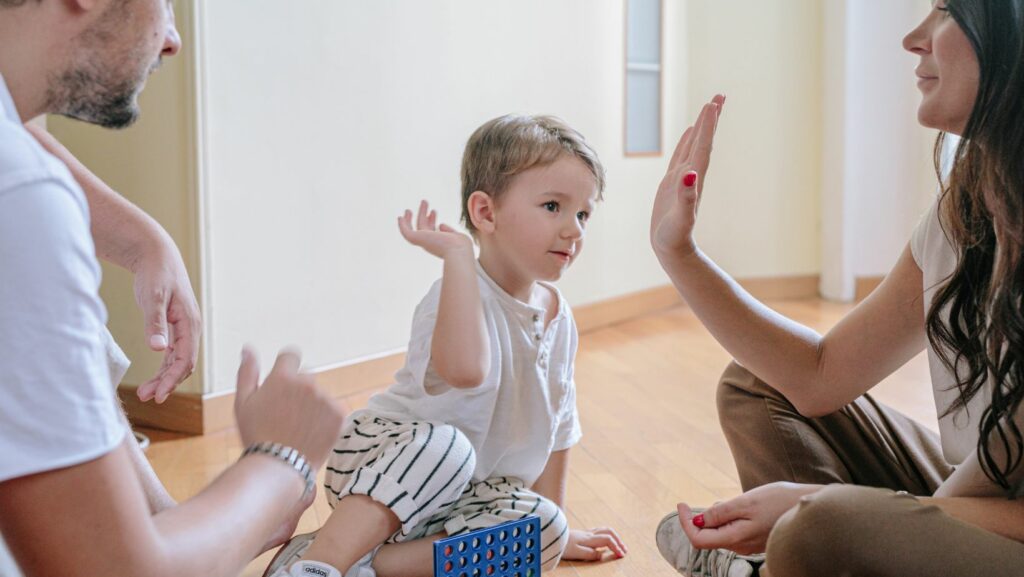Every parent knows that raising children is no easy feat. It’s a journey filled with joy, chaos, and countless learning experiences. But what if there were shortcuts to make this journey a little smoother? Welcome to the world of ‘fpmomhacks,’ a treasure trove of parenting tips that could transform your everyday parenting struggles into a breeze.
Parenting Tips fpmomhacks
 Diving into the world of parenting tips fpmomhacks, it’s crucial to peep into its origin and understand the various fields it covers. This vast repository of tips, accumulated by many experienced parents, assists parents in navigating the overwhelming path of parenthood.
Diving into the world of parenting tips fpmomhacks, it’s crucial to peep into its origin and understand the various fields it covers. This vast repository of tips, accumulated by many experienced parents, assists parents in navigating the overwhelming path of parenthood.
Discovering the roots of fpmomhacks, one finds it’s a collection of real-life experiences. Crafted by seasoned parents, these hacks serve as a valuable assistance for vast numbers of struggling parents. Eyeing the exponential popularity fpmomhacks has achieved, it’s evident that these tips have strong credibility and hence, have become a beacon of light for many parents in the vast sea of parenthood. The large popularity indicates dyadic reciprocity – as the number of parents who found these hacks to be helpful increased, so did its popularity.
Exploring deeper into parenting tips fpmomhacks, it’s noteworthy how it encompasses manifold significant areas. First, it takes care of parents’ wellbeing, endorsing an array of tips to keep parents mentally and physically sound. Second, it covers tips on children’s nutrition, ensuring they receive a balanced diet. Third, it guides parents on inculcating good habits and discipline in children. Lastly, it emphasizes play, nurturing creativity amongst children and strengthening the parent-child bond. Essentially, fpmomhacks teaches parents to balance several crucial aspects, making the parenting journey smoother and efficient.
Effective Communication With Children
 Transitioning from fpmomhacks’ well-rounded advice on fostering good habits and bonding through play, this segment delves into the realm of communication with children, an aspect equally pivotal in successful parenting. Adapting communication strategies to align with a child’s developmental maturity brings about effective parent-child dialogue. For example, it’s simpler for toddlers to understand pictorial or demonstrative explanations, whereas, adolescents comprehend an abstract and logical form of discussion. Kids aged six to eight typically respond well to open-ended questions, enhancing their thinking capacities. Hence, understanding the mental agility of kids at different ages ensures meaningful exchanges rather than one-sided instructions.
Transitioning from fpmomhacks’ well-rounded advice on fostering good habits and bonding through play, this segment delves into the realm of communication with children, an aspect equally pivotal in successful parenting. Adapting communication strategies to align with a child’s developmental maturity brings about effective parent-child dialogue. For example, it’s simpler for toddlers to understand pictorial or demonstrative explanations, whereas, adolescents comprehend an abstract and logical form of discussion. Kids aged six to eight typically respond well to open-ended questions, enhancing their thinking capacities. Hence, understanding the mental agility of kids at different ages ensures meaningful exchanges rather than one-sided instructions.
Listening and Responding
A two-way communication street exists between mindful listening and articulate responding. Studies reveal that children confide more in their parents when they feel heard. Rather than rushing in with solutions, parents might consider reflecting their child’s feelings, saying, “You seem upset because your game isn’t going as planned.” This active listening approach not only validates their emotions but also sets the foundation for problem-solving. Consequently, a balance of thoughtful responses supports a trusting relationship, promoting a communication channel always eager for dialogue.
Setting Healthy Boundaries
 Setting healthy boundaries in a parent-child relationship is pivotal. It establishes a sense of security and responsibility among children while protecting their independence. Implementing structure plays a vital role in children’s growth. It provides predictability, promotes consistency, and minimizes anxiety. Take school schedules, for instance. A school operates on a set timetable, delineating times for classes, recess, and extracurricular activities. Pupils understand what’s expected of them, and thus, they process the routine smoothly. In a similar way, home-implemented structures can contribute to a child’s discipline and sense of security. Children comprehend expectations better, leading to less friction and more respect for limits.
Setting healthy boundaries in a parent-child relationship is pivotal. It establishes a sense of security and responsibility among children while protecting their independence. Implementing structure plays a vital role in children’s growth. It provides predictability, promotes consistency, and minimizes anxiety. Take school schedules, for instance. A school operates on a set timetable, delineating times for classes, recess, and extracurricular activities. Pupils understand what’s expected of them, and thus, they process the routine smoothly. In a similar way, home-implemented structures can contribute to a child’s discipline and sense of security. Children comprehend expectations better, leading to less friction and more respect for limits.
A sense of self-reliance boosts confidence in children and is a crucial element in teaching life skills. Fpmomhacks encourages parents to slowly imbibe independence in their children. They suggest starting with small tasks, like setting the table, dressing up, or tidying the room Over time, as the child matures, tasks can focus more on managing personal affairs, helping out with family chores, and dealing with social situations. This stepwise, age-appropriate approach ensures a gradual development of confidence and independence. Remember, fostering independence doesn’t mean stepping back; it means guiding from the side lines, offering help when needed, and celebrating accomplishments along the way.

